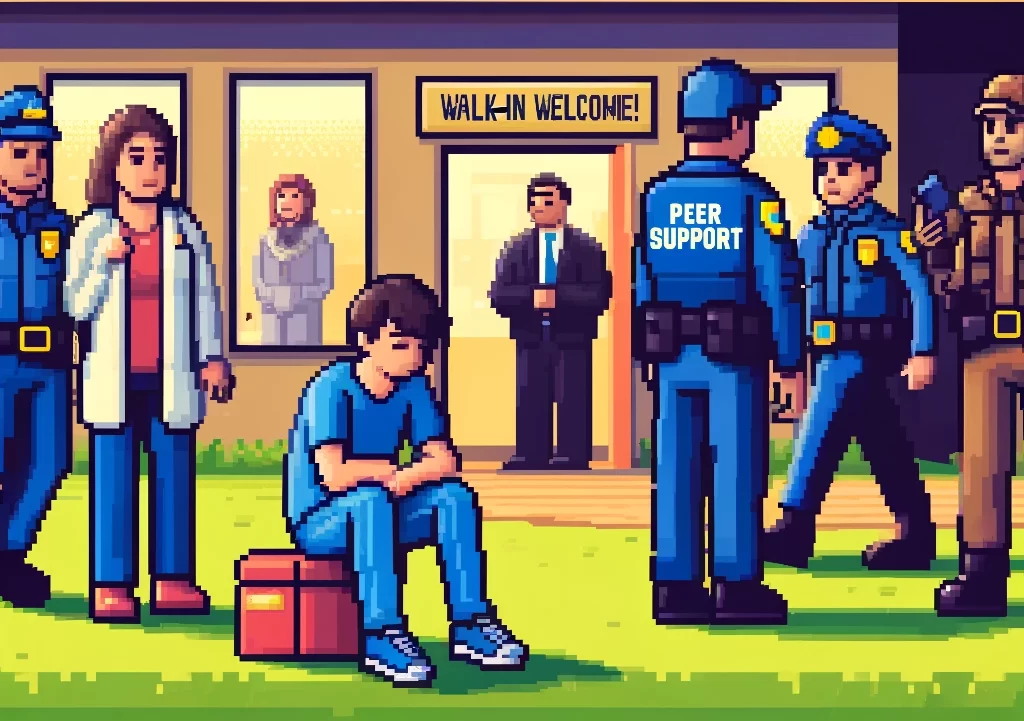
Revolutionizing Crisis Response: 21st Century Solutions
In a thought-provoking plenary session at yesterday’s NAMI conference, Dr. Margie Balfour shared her vision for building a 21st-century crisis system. Her insights highlighted the urgent need for a transformative approach to mental health crisis response in the United States, emphasizing the importance of system coordination, interdisciplinary collaboration, and sustainability.
The Future of Crisis Response
Balfour began by discussing the current state of crisis response in the U.S., where law enforcement officers often serve as primary mental health responders. This reliance has led to numerous deadly encounters and positioned jails as de facto mental health facilities—a stark reflection of the carceral state intertwined with mental health care. She cited a staggering statistic: over 50% of emergency departments (EDs) lack psychiatric services, resulting in what is known as psychiatric boarding.
Diversity in Crisis Services and Bipartisan Support
Despite the varied landscape of crisis services across the country, Balfour stressed that mental health is fundamentally a bipartisan issue. Investing in robust crisis systems benefits everyone, transcending political affiliations.
In Arizona, for instance, the crisis system is built on Medicaid, requiring braided funding, accountable entities, and shared goals. This model demonstrates that with the right ingredients—accountability, collaboration, and data—effective crisis systems can be developed.
The Role of SAMHSA and the 988 Lifeline
The Substance Abuse and Mental Health Services Administration (SAMHSA) has outlined three pillars for a comprehensive mental health and substance use disorder (MH/SUD) emergency system:
- 988 Crisis Lifeline. The introduction of the 988 lifeline is a pivotal first step towards comprehensive MH/SUD emergency services. However, there remain concerns about what happens when someone calls 988, including potential connections to law enforcement and issues with geo-routing (directing calls to the appropriate call center based on the caller’s area code, which involves the Federal Communications Commission).
- Mobile Crisis Response Teams (MCTs). Effective crisis response requires mobile crisis teams that can include various combinations of roles, such as clinicians, law enforcement, and multidisciplinary professionals. Importantly, peers—individuals with lived experience—should be integral to these teams.
- Crisis Receiving Centers (CRCs). CRCs should be accessible and provide walk-in, drop-off, and urgent care services. The goal is to make these centers more accessible than jails. Effective CRCs remove clinical barriers to care and show positive clinical outcomes without relying on security guards, instead investing in trained technicians. However, a dedicated law enforcement entrance is essential to manage specific situations safely. Interdisciplinary teams at CRCs can be easily identified through color-coded scrubs.
Comprehensive Crisis Care and Sustainability
Balfour underscored that crisis services must address both substance use and mental health crises equivalently. This approach ensures that individuals receive the appropriate care regardless of the nature of their crisis.
Sustainability is crucial for the longevity and effectiveness of crisis systems. Investing in these systems is not just a practical decision but a necessary one to ensure that crisis care remains available and effective for future generations.
In conclusion, building a 21st-century crisis system requires a multifaceted approach, integrating diverse services, fostering bipartisan support, and ensuring sustainability. By focusing on these key areas, we can create a crisis response system that truly serves everyone in need.
Become a Health Innovator – Get Weekly Updates!
Join the forefront of public health innovation with “This Week in Public Health.” Each issue keeps you up-to-date with the latest in research, community health, and advocacy. This newsletter is more than just updates – it’s your tool for being an informed and active member of the health community. Subscribe for free and be part of a group dedicated to making a real difference in public health.



